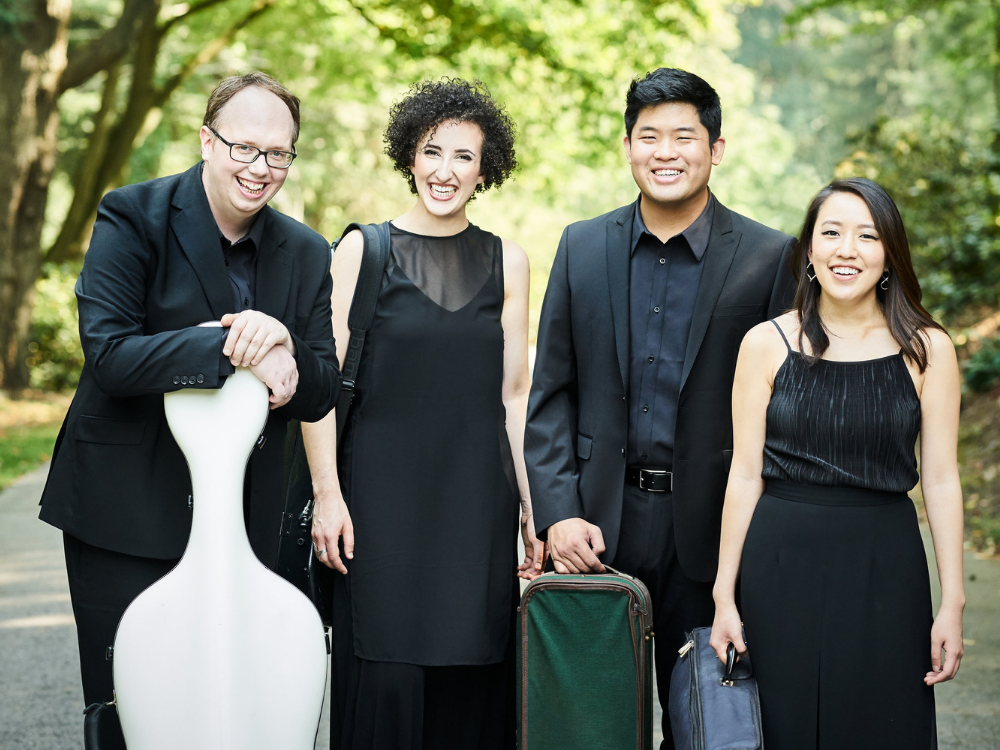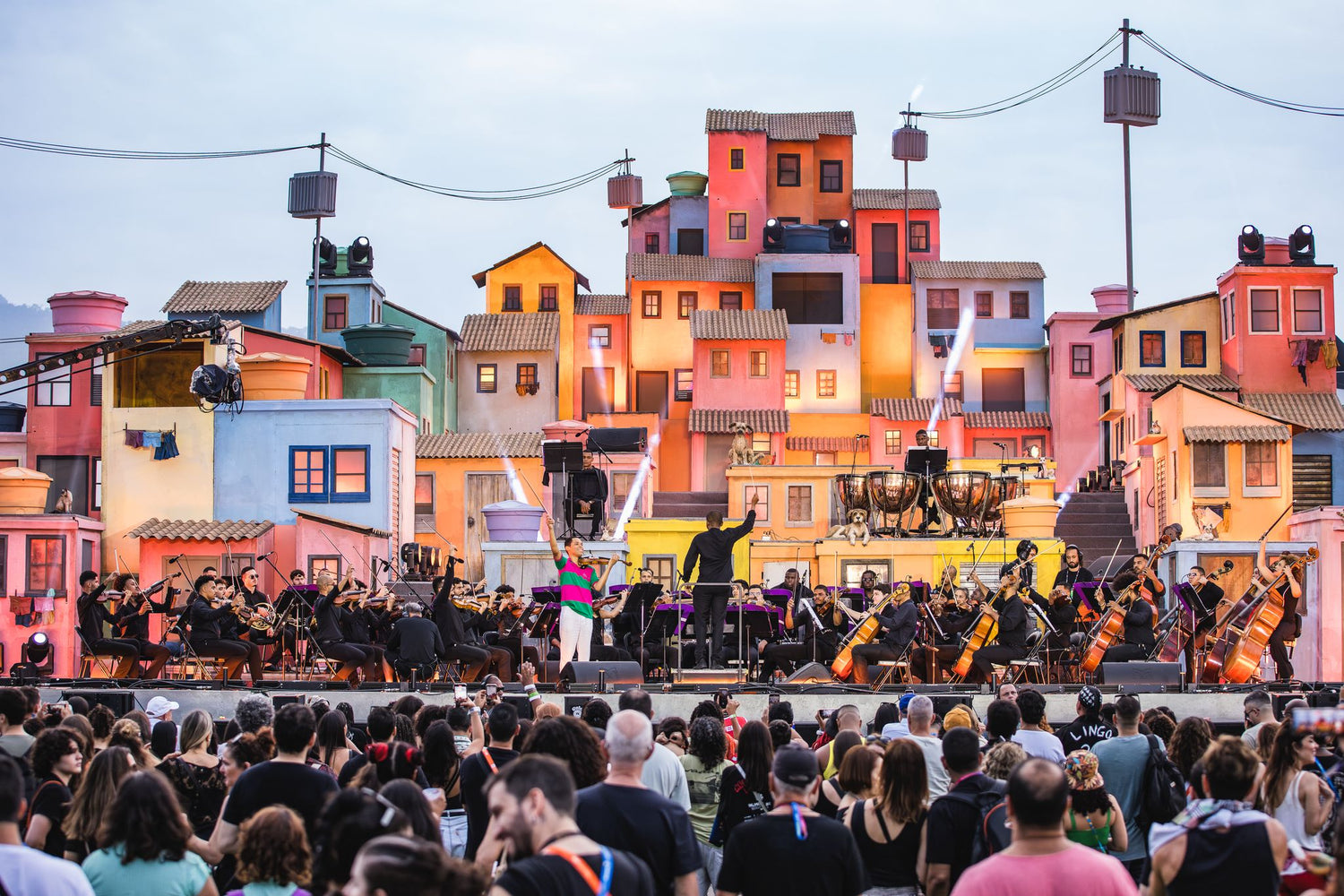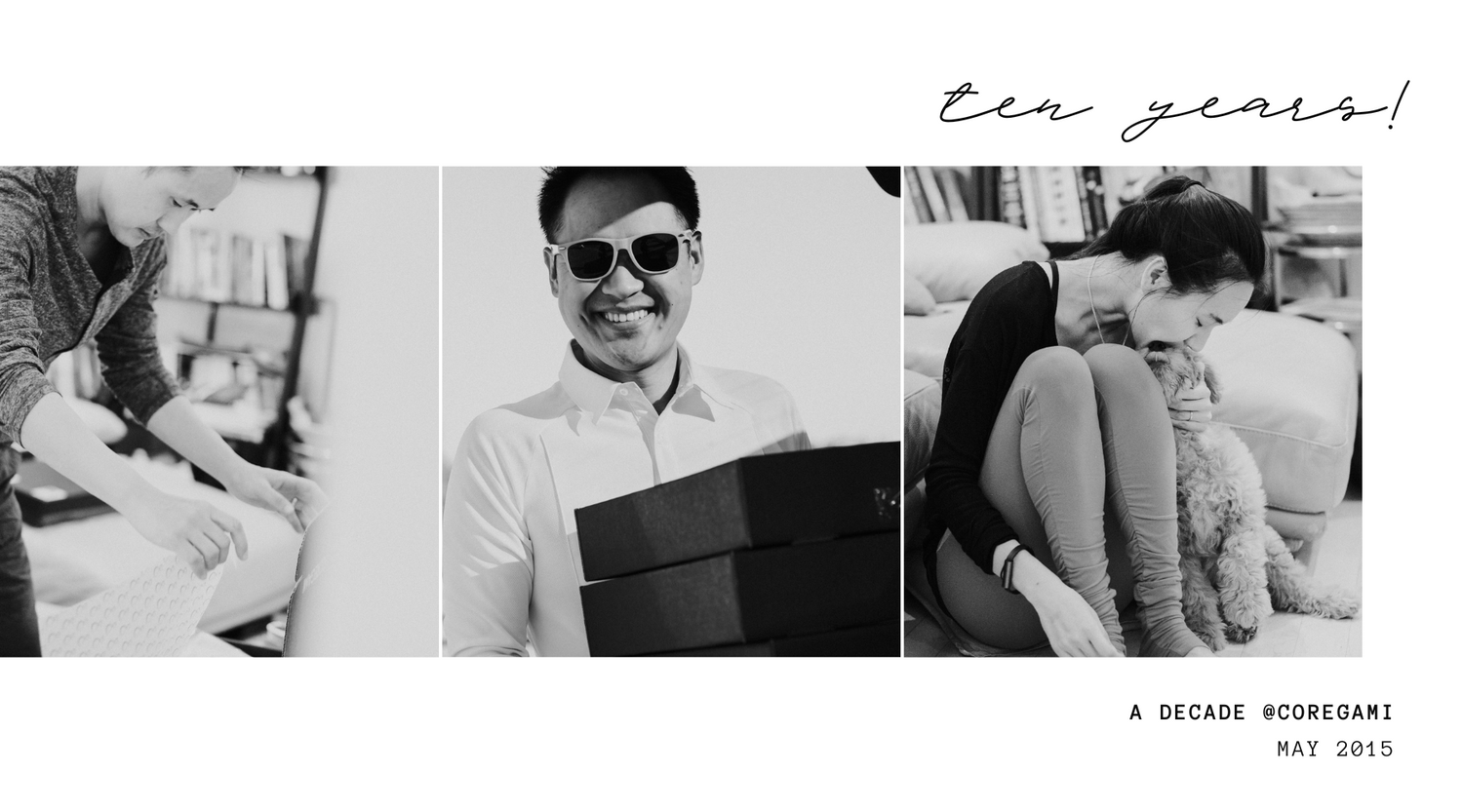Just call Jonathan and his fellow quartet members the new “fab four”

By Rachel Watkins
They just appeared at Carnegie Hall. They’ve garnered worldwide recognition with top prizes at competitions across four continents. They’ve won the 2015 Concert Artists Guild Competition. And, they’ve already been hailed by The New York Times as an “outstanding ensemble.”
Not bad for the young guns of the Verona Quartet, who formed their group just a handful of years ago at Indiana University in 2013. Now, Jonathan Ong (violin), Dorothy Ro (violin), Abigail Rojansky (viola), and Jonathan Dormand (cello) are hopscotching from London, to Japan, Australia, and across the U.S. showcasing what the Calgary Herald has called “interpretive strength, robust characterization [and] commanding resonance.”
Naturally, we wanted to know more about what it takes to be part of such a talented group of jet-setting musicians. So, we went straight to the source. Here’s what violinist Jonathan Ong had to say about everything from Stranger Things to concert prep.
How did the Verona Quartet begin?
We all met at Indiana University in 2013 and kind of bonded over our love of chamber music. While we were in school, we formed a quartet for class credit. As circumstance would have it, the [internationally renowned] Pacifica Quartet was teaching in residence on the faculty, and one of the members heard us and encouraged us to start competing. We did a number of local competitions then that progressed to international competitions—everywhere from Japan to London to Melbourne. It has been a really exciting journey so far. It’s a full-time job—and I don’t think any of us would have it any other way.
" For me, it’s about some quiet time and meditation before the performance to really get centered. "
How do you get ready for a big show?
Everyone has slightly different rituals in the quartet. For me, it’s about some quiet time and meditation before the performance to really get centered. I also like to eat a big meal at lunch and then barely eat before the concert, as I don’t like to be too full before I play. To warm up, I generally play a very slow scale and some double-stop exercises.
Tell us about your violin
I’m currently playing a Guarneri—a contemporary to Stradivari—and it’s great. An instrument can teach a player a lot about the craft because each one is so different. We learn from teachers, but the instrument is also a teacher.

Who has been most influential in your music career?
There are so many! The Pacifica Quartet and our individual professors at Indiana University were our ensemble’s very first mentors. We also studied with the Juilliard String Quartet and David Finckel during our residency at The Juilliard School; and now at the New England Conservatory we work with Paul Katz and many other wonderful faculty members in the school. And, I think that each of us in the group would celebrate our own private teachers for the impact they’ve had. You can definitely hear a little of our mentors in all of us.
What do you and the rest of the quartet like to do when you’re not practicing?
Well, everyone has different things they like to do independently, but we do things together, as well. While we were in residence at Caramoor Center for Music and the Arts in Katonah, New York, we watched Stranger Things. Random, I know. But, we really like to cook together, too. Abigail is really amazing at both cooking and baking—her cookies are to die for! Dorothy is usually in charge of drinks. Our cellist made a corn casserole the other day that was so good. I make a lot of Asian food.
We hear that you're from Singapore. Any favorite food items or places we can't miss?
Favorite food: satay, chicken rice, barbeque stingray, and durian!
Favorite Hawker Center: Adam Road Food Court
Favorite things to do in Singapore: Going to a concert at the Esplanade, cycling along the beach at East Coast Park and hanging out with old friends/classmates.
Most memorable performance thus far?
With the quartet, we’ve had the opportunity to travel the world—and go to some really eye-opening locations. We went to the United Arab Emirates in 2015, where we spent 10 days giving performances. It was actually a collaborative project with Arab poets, where we performed our music with their poetry. The synergy between both was just so evocative, and it also demonstrated the fact that music can transcend cultural differences. Along those same lines, though, just about any traveling experience is memorable. It’s so compelling to be able to experience different cultures and see how they react to music; it is heart-warming. It really shows the power of music to communicate.
It’s so compelling to be able to experience different cultures and see how they react to music; it is heart-warming. It really shows the power of music to communicate.
How did you find out about Coregami?
Well, it seems as if I’ve been struggling with concert attire my whole life. There is just so much fabric going on with a dress shirt and a tie and a jacket; It’s hot and constricting. So when I heard about Coregami at a music festival and someone showed me a Coregami shirt, I was immediately sold on the concept. I wrote the founder, Kevin Yu, an email and introduced myself. We met in New York City, when he was there for the Orpheus Chamber Orchestra performance. Not only do I love his product, I have so much respect for him as an entrepreneur. After all, being in a quartet is kind of entrepreneurial, too—it’s start-up.
What’s your favorite quality about the Coregami shirt?
I think I would have to say that they are breathable—even with hot stage lights. If you’re perspiring, you don’t feel the sweat. I also like their flexibility, too. I do have to say that my female colleagues in the quartet have been eyeing my Coregami shirts. They want Coregami dresses; we may need to talk to Kevin about that.
It seems as if I’ve been struggling with concert attire my whole life. There is just so much fabric going on with a dress shirt and a tie and a jacket; It’s hot and constricting






